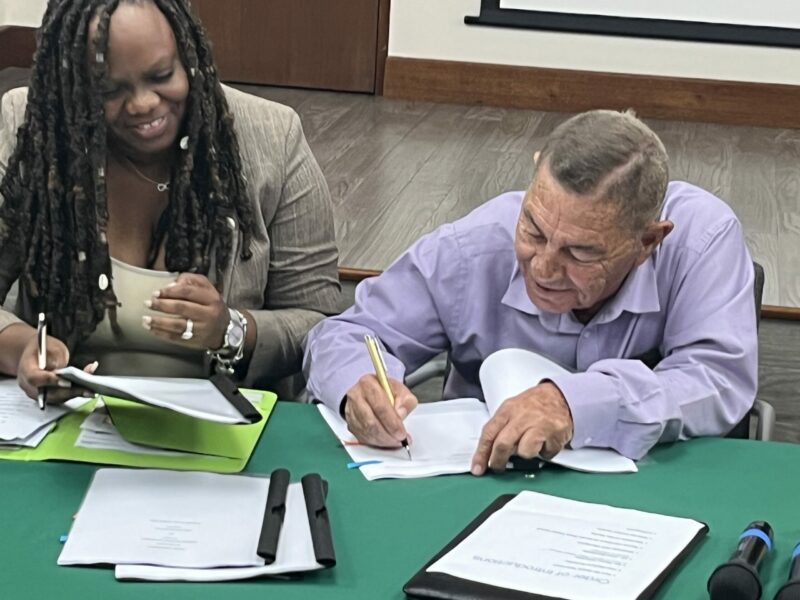
Antigua Public Utilities Authority (APUA) has signed an agreement with Seven Seas Water Group (SSWG), a US-based company, to increase its water production capacity by approximately 3 million gallons per day.
As part of the agreement, SSWG will build two new seawater reverse osmosis plants near the existing facilities at Fryes Beach and the Ivan Rodrigues at Barnacle Point.
The new plants will be implemented in two phases, with Ffryes Beach expected to commence water production within six-seven months of signing the agreement.
The overall project cost is estimated to be around $80 million, with SSWG investing approximately US$23 million (EC$62.1 million) and APUA investing an additional EC$15 million for the civil works associated with the project.
General Manager of APUA, John Bradshaw, explained that public/private arrangements were necessary to fund this expansion in water production as it would have been challenging for APUA to do it alone.
“The recommendation is that we pursue these public/private arrangements as if APUA was to fund this expansion in water production by itself, it would have been very difficult,” Bradshaw said, adding that the contract calls for both plants to be up and running within an eighteen-month period (Fryes in six months and Ivan Rodrigues 18 months later) but both APUA and SSWG have agreed to work towards delivery ahead of time in both cases.
The two plants are expected to be up and running within an eighteen-month period, but both APUA and SSWG have agreed to work towards delivery ahead of time in both cases.
The addition of these plants will address one of the main challenges faced by APUA’s Water Business Unit, which is the production of water to meet both the current and growing demand.
The water division has been the ‘sick child’ within APUA, requiring constant subsidization from the other units.
Despite changes in the methodology in which water is produced, the price for water to the consumer has not increased since the 1990s.
The other units have not only been subsidizing the Water Division for expansion and replacement of parts but also selling the water to consumers at a subsidized cost.
As the distribution network is aging and needs replacement, APUA has been producing water at a high cost with the reverse osmosis plants with a high level of leakage and still subsidizing the cost.
Utilities Minister Melford Nicholas has hinted that an increase in the cost of water is forthcoming, first to business customers and eventually to domestic consumers as well.
“Today’s proceedings are about achieving one of the outcomes that I had set when I was appointed to the portfolio in January last year and to come to this position, we had to take a cold hard assessment of where we are as historically, the water division has been the ‘sick child’ within APUA. It never produced economic or financial surplus so it has always had to be subsidized from the operations of the other units,” he outlined.
“Not only have the other units been subsidizing the Water Division for expansion and replacement of parts, but it was selling the water to consumers at a subsidized cost. When you multiple this by the fact that our distribution network is aging and needs to be replaced,” he said






It doesn’t matter if water is subsidized by the other Departments – APUA is one utility company. Water is essential for life and they should strive to keep rates low. However, if a small increase in rates is needed to ensure a constant supply, so be it. They should not pursue a large increase just to have that Department pay for itself. Congrats on the Public-Private partnership – whatever they have to do to achieve a consistent supply at a reasonable price is ok.
I thought Melford Nicolas is the minister over APUA.